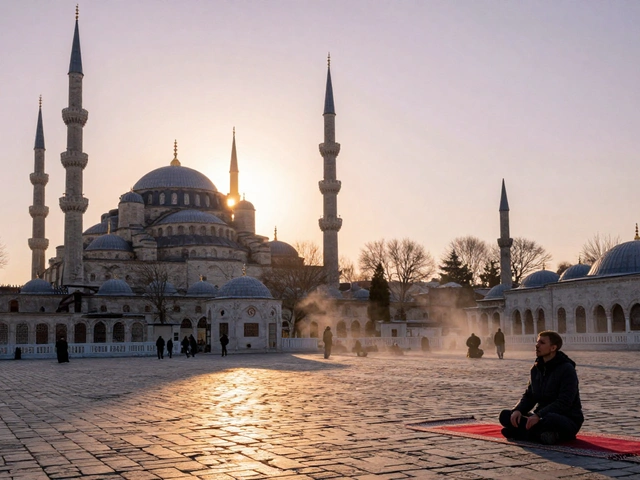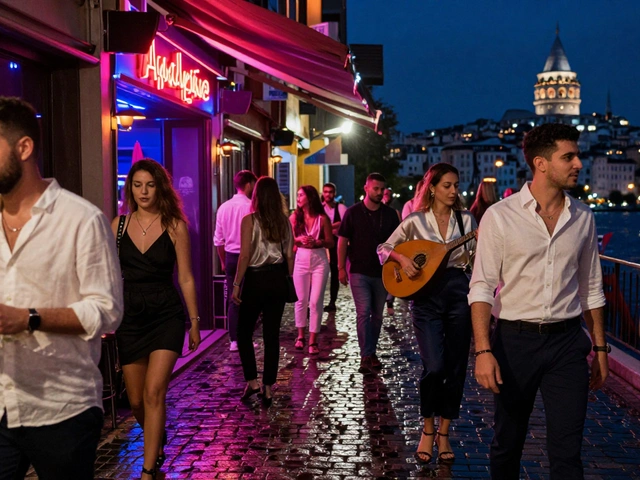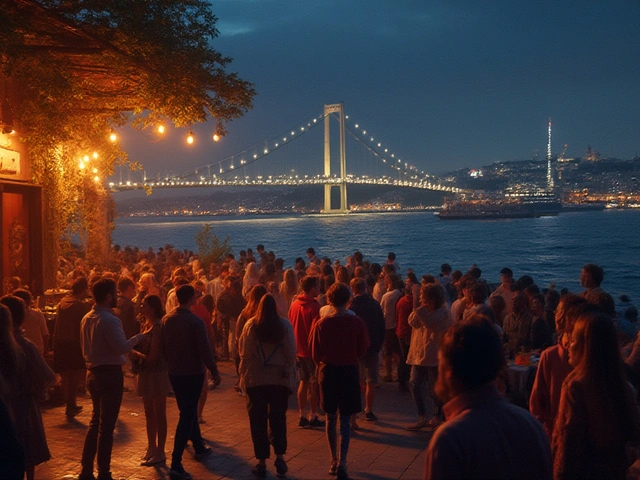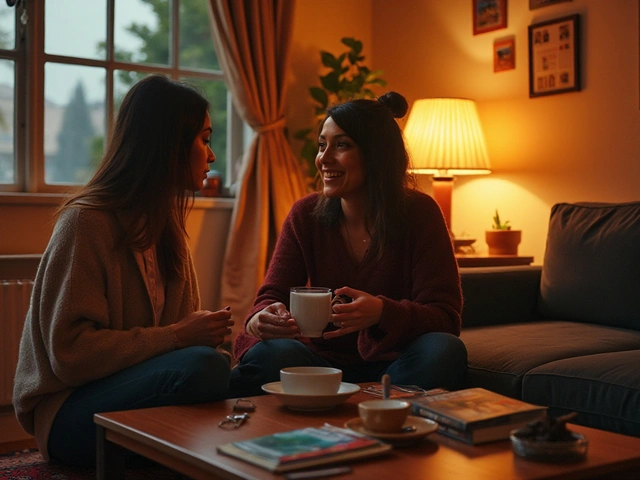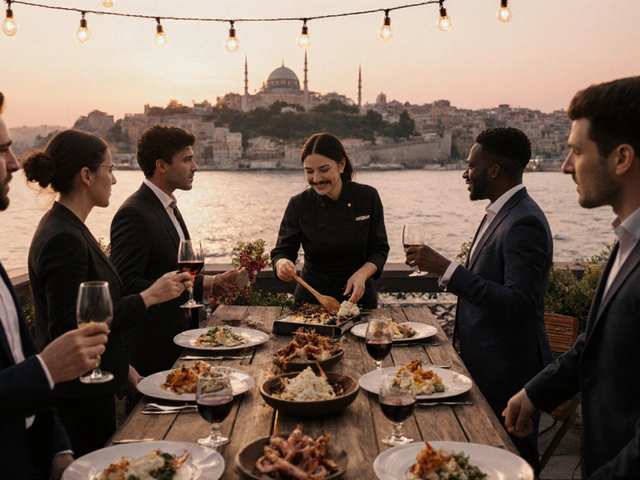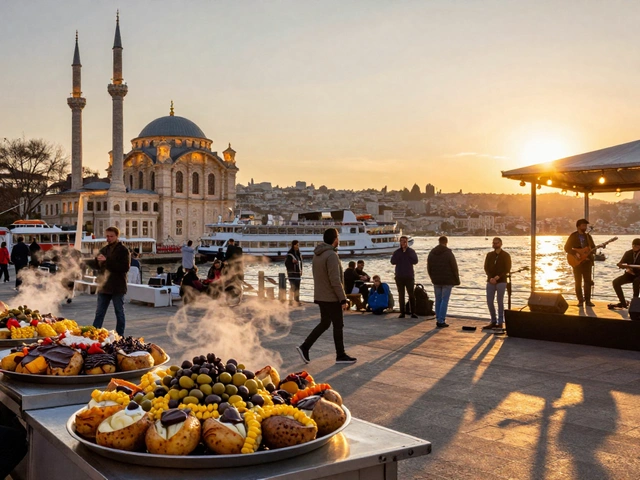Istanbul Conditions: What You Need to Know Before You Go
If you’re planning a trip to Istanbul, the first thing to sort out is the everyday conditions that shape your stay. From weather swings to crowd levels, a few simple heads‑up can turn a good visit into an awesome one. Below you’ll find practical tips that cover everything you’ll need to feel comfortable while you explore the city’s food, nightlife and sights.
Weather and Seasonal Tips
Istanbul lives on a mix of Mediterranean and Black‑Sea climate, so you’ll see hot summers, cool winters and plenty of rain in spring and autumn. Summer (June‑August) can push 30 °C, perfect for rooftop bars but exhausting if you’re walking the historic sites. Bring a lightweight hat, sunscreen and a refillable water bottle.
Winter (December‑February) rarely drops below 0 °C, but the wind off the Bosphorus can make it feel colder. Pack a warm jacket and comfortable shoes for the cobblestones. Spring and autumn are the sweet spots – mild temps, fewer tourists and blooming parks. Just keep an umbrella handy; showers are common.
Safety and Local Etiquette
Overall, Istanbul is safe for solo travelers and families alike, but a few basics keep things smooth. Pickpockets target crowded areas like the Grand Bazaar and tram stations, so keep your wallet in a front pocket or a zip‑up bag. When you’re out at night, stick to well‑lit venues and use reputable rideshare apps instead of hailing random cabs.
Respectful dress matters in religious sites. Women should cover shoulders and knees in mosques, and a scarf is needed if you want to enter the prayer hall. Men should avoid sleeveless tops. Outside holy places, casual street style is fine – jeans, a t‑shirt and comfortable shoes work everywhere.
When ordering food or drinks, don’t be shy about asking for the level of spiciness you prefer. Turkish cuisine is flavorful but not always hot. If you’re a vegetarian, many menus mark “vejetaryen” or you can say “et yemiyorum” (I don’t eat meat). The staff will usually suggest alternatives.
Opening Hours and When to Go
Most museums and historic attractions open around 9 am and close by 6 pm, with a half‑day off on Mondays. Restaurants often close for a siesta between 3 pm and 5 pm, then reopen for dinner. Nightlife spots, especially in Beyoğlu and Kadıköy, start to fill up after 10 pm and stay lively until 3 am.
If you want to avoid long lines at the Blue Mosque or Hagia Sophia, aim for early morning right after opening, or late afternoon an hour before closing. For nightlife, arrive early (around 9‑10 pm) to snag a good spot before the crowd peaks.Public transport runs from 5 am to midnight; night buses and metros keep the city moving after that. Grab an Istanbulkart for seamless travel on buses, trams, ferries and metros.
Food, Nightlife and Must‑See Spots
For late‑night cravings, head to the streets of Karaköy or Balat where kebab stalls stay open till 2 am. If you’re hunting for a relaxed dinner, the seaside restaurants in Ortaköy offer great views of the Bosphorus and a calm vibe after sunset.
Nightlife lovers should try Kiki Nightclub or Flekk Nightclub for a mix of local DJs and international acts. Both venues have a dress code – smart‑casual is safest – and a small entry fee after midnight.
Don’t miss the Grand Bazaar for shopping, but set a budget and practice haggling. The market is a maze of textiles, spices and souvenirs; the experience is as much about the hustle as the finds.
Finally, keep an eye on local festivals. Events like the Istanbul Music Festival or the International Film Festival can add unique concerts or screenings to your itinerary, often with free or reduced‑price tickets for residents and tourists.
Understanding Istanbul’s everyday conditions helps you plan smarter, stay safe and enjoy more of what the city offers. Use these tips as a checklist, adjust for the season you’re visiting, and you’ll be ready for a memorable adventure in Turkey’s vibrant crossroads.
